LEARNING TO OUTGROW EMOTIONAL REACTIVITY:
HEIGHTENED NEUROSIS:
I had listened to a podcast from Eckhart Tolle titled: “Learning To Outgrow Emotional Reactivity” prior to teaching class this week and then, instead of outgrowing my emotional reactivity, I felt like I was having an outburst of emotional reactivity, in front class, (in front of everyone that I try to be ‘perfect’ in front of.) I think this is normal… like when we bring our awareness to something and then, instead of it dissolving, we find that the neurosis actually gets bigger. In Vajrayana Buddhism this is called “heightened neurosis”… like we might assume that as we train ourselves into this more open state that our habitual patterns will start to unwind; day by day, month by month, we’ll be more open minded, more flexible, more of a warrior… but what actually happens with ongoing practice is that our patterns intensify.. and this inches us towards experiencing our full-blown neurosis (our methods of looking for ground)… and that’s the fire that cooks us into interrupting the cycle.
INTERUPTING:
“When we start to interrupt our ordinary ways of calling ourselves names and patting ourselves on the back, we are doing something extremely brave. Slowly we edge towards the open state, but let’s face it, we are moving toward a place of no handholds, no footholds, no mind-holds.” – Pema Chodron
PROJECTION:
When I go into phases of being critical of myself, I start to hear comments and requests from others as criticism. Then there can be a reactivity there inside of communication… like a ‘conflict’ feeling. I taught two classes from this reactive place this week and was really upset about how I responded to students. Each time, in the moment before I let them see my reaction it seemed like a good idea and as I was having the reactive communication it became clear that it was a bad idea. In the moments after my reactive communication, I felt upset with my response and wished I could have a re-do but wasn’t sure of what I would do differently, only that I wouldn’t do it like that! I didn’t realize that I was being reactive because of how I was treating myself until two days after and that it was twisting my perspective around so I was then hearing things as being critical that weren’t.
INFLAMMATION:
Apparently, astrologically, we are in Mars retrograde right now, which Mars is the god of war… and there is something about it theming around communication.. So, it’s a time of war in communication. Chani Nicholas was talking about it being like inflammation… how inflammation’s intention is to bring attention to the places that need to heal but it can be damaging to the system. So, how do we accept how we are feeling, even allow ourselves to feel that it’s valid, and justified, without damaging our system of community / relationship / friendship in the outside world, and also not turning that in on ourselves and damaging our internal system?
NEEDS & JUDGMENT:
One of the things coming up for me around both situations is realizing that I have needs that I wasn’t aware of… and in both situations, I was wanting others to already know them without me telling them, and then being mad at them for not meeting those needs and judging them for not knowing.
BEING ON TRIAL:
I pay special attention to when I am judging or complaining about others because it’s a two-edged sword. If I have that judgment of another person, I am unconsciously also holding that judgement of myself. I’d be wanting myself to be perfect in some way that it’s impossible to be perfect in. With this situation, I might not know what another person’s needs are but if I am thinking that I should and it turns out that I guess wrong or don’t know what their needs are, I might feel like really ashamed or judgmental of myself for not knowing and shrink back in the relationship or get consumed with self-doubt… thinking that I should be different than I am. And maybe I would even start collecting evidence against myself. If that gets really blown up, I might limit my self-expression in the world, just feeling like I’m not good enough to really go for something that I’d like to do, especially with all the “proof” of my incompetence that I have gathered.
BEING A SAFE TEACHER:
I have had a handful of teachers, who I shared something vulnerable with and then they judged me or shamed me in public around it. It’s become extremely important to me that I am not like that but, that I am safe to actually learn and heal and grow around. I feel like, as a teacher, people come to us with their boo-boos and that’s the point. So, pointing at the boo-boo and judging it, is like, ILLEGAL! However, in order to do that, I’ve got to have done it with myself first. I think that’s why teaching cooks me so hard. It’s like a buffet of, “How about this? And this? And this? Annnnd this?” Frequently, someone brings in something that, I’m like..oooo…. yeh, I haven’t got a good relationship with that pain either! For me, there is a lot of growth in being a teacher, a lot of heart expansion. I’ve never felt like, “Oh, I’ve got this perfectly down so therefore I can teach it.” I’ve mostly felt whiplash between feeling good and bad about myself and passionate about going through it and the growth that comes from that process.
BEYOND RIGHT AND WRONG:
“Compassionate action, being there for others, being able to act and speak in a way that communicates, starts with seeing ourselves when we start to make ourselves right or make ourselves wrong. At that particular point, we could just contemplate the fact that there is a larger alternative to either of those, a more tender, shaky kind of place where we could live. This place, if we can touch it, will help us train ourselves throughout our lives to open further to whatever we feel, to open further rather than shut down more. We’ll find that as we begin to commit ourselves to this practice, as we begin to have a sense of celebrating the aspects of ourselves that we found so impossible before, something will shift in us. Something will shift permanently in us. Our ancient habitual patterns will begin to soften, and we’ll begin to see the faces and hear the words of people who are talking to us.” – Pema Chodron
POWER IN APPOLOGY:
Something that has been historically hard for me is saying “sorry.” I think that’s because, in the past, admitting I was wrong was like giving my power over to someone else, like my parents. If I was wrong, and they were right, it meant that I had to act according to their rules. Like, I’d lose my autonomy and authority over how I wanted to do my life. BUT now, that I am an adult and relying on myself primarily to meet my needs, I get to have different relationships. There is quite a bit of power in apologizing because then I can take responsibility for my part and do things to create change in the way I actually want to be in relationship. There is a beautiful vulnerability there too, it’s an opening, like an allowing the relationship to touch you and deepen.
WHY I SHARE:
I’m sharing this to make something that could feel isolating into something that doesn’t have so much stigma or shame around it, but something that is like shared by all of us, so it’s easier to heal. I feel like it’s impossible to change things that we are judging… judging means we are resisting our experience. If there is resistance, there that means we aren’t open to our experience. If we aren’t open, we can’t experience change. Sharing this stuff is also one way that I am more honest and allow more of myself to be seen in the world. I can be more myself, and in a certain way, there is less to lose because I don’t have a secret stash of things about myself that are hidden. It’s my way of saying, “How about this? And this? Annnnnd this?” to myself.
I usually stop judging things when I realize they are just, like, the nature of reality… like this experience is just one of the many experiences to be had here as a human.Once the shame and fear and criticism are off of it, it’s easy to experience change because there isn’t the reactivity there. It’s like I’m not blocking and protecting… there is an openness.
OVERCOMING SELF-DECEPTION:
“The essence of bravery is being without self-deception. However, it’s not so easy to take a straight look at what we do. Seeing ourselves clearly is initially uncomfortable and embarrassing. As we train in clarity and steadfastness, we see things we’d prefer to deny—judgmental-ness, pettiness, arrogance. These are not sins but temporary and workable habits of mind. The more we get to know them, the more they lose their power. This is how we come to trust that our basic nature is utterly simple, free of struggle between good and bad.” – Pema Chodron



0 Comments